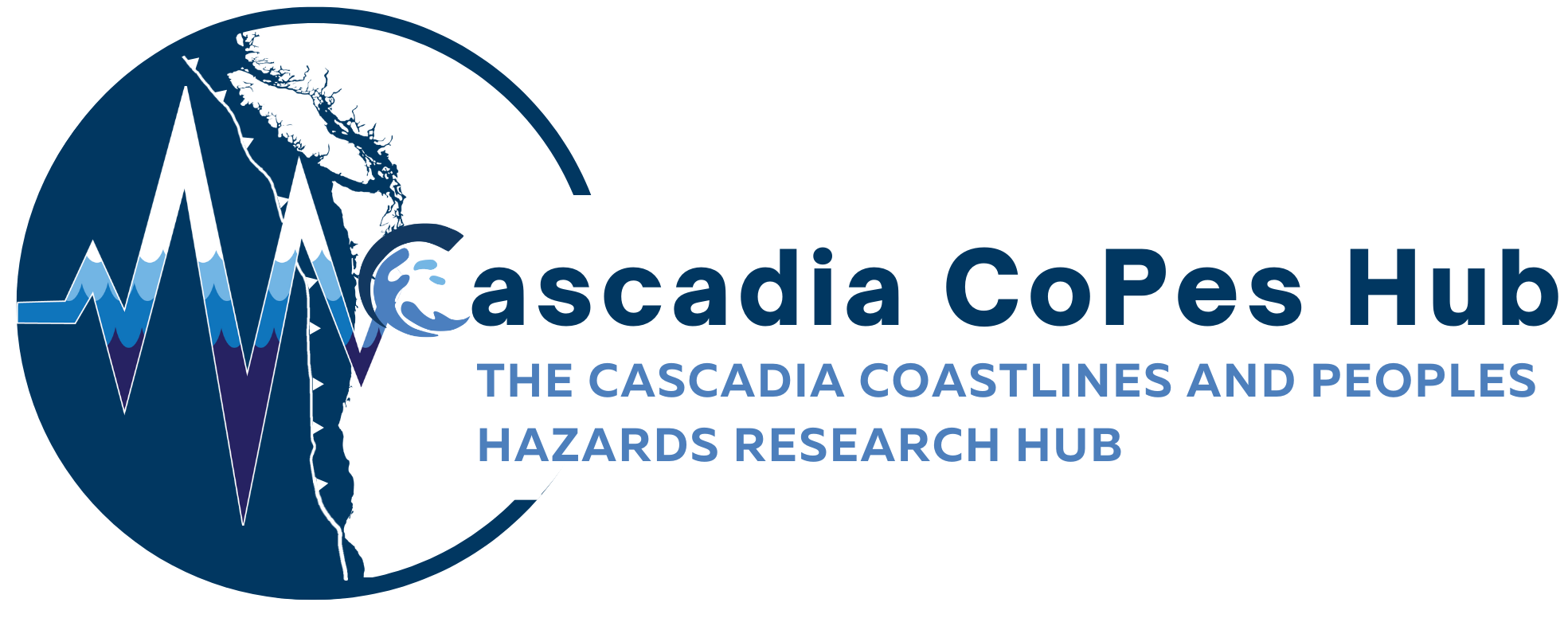Geohazards Virtual Workshop with State & Federal Agency Partners
A main goal of the Cascadia Copes Hub through team 1, is to better understand tectonic geohazards, including earthquakes, tsunamis, and landslides and the affects these hazards will have on the landscape, communities, and infrastructure. On November 7, 2022 members of Team 1 hosted the “Cascadia CoPes Hub Geohazards Virtual Workshop with State & Federal Agency Partners”, bringing in close to 90 people throughout the day, from the Hub and various agencies, to learn about each others work and find connections and areas to collaborate.
The 4 hour day consisted of 3 sessions featuring 5 minute pop-up talks from our Hub members and agency partners. The talks given by Hub members can be viewed below. For a full recording of the meeting, please reach out to the project manager Alessandra.Burgos@oregonstate.edu
Session 1: Earthquakes and tectonics
This session discussed new research focused on fault characterization, earthquake ground motion simulations, estimates of vertical land movement, and landslide hazards.
Speakers:
Harold Tobin (UW) – Identifying and characterizing offshore faults with rupture potential
David Schmidt (UW) – Probabilistic predication of the vertical land movement along the Cascadia coastline from tectonics and future earthquakes
Alison Duvall (UW) – Characterizing coastal Cascadia landslides of the past and future using mapped and dated slide inventories and forward modeling
Session 2: Tsunami Generation & Inundation
This session discussed new research focused on tsunami simulations from Cascadia Subduction Zone and crustal fault earthquakes, tsunami debris forecasting, and tsunami evacuation.
Speakers:
Carrie Garrison-Laney (WA Sea Grant) – The geologic record of past tsunamis at Discovery Bay, improving ages and identifying sources
Randy LeVeque (UW) – Coupled earthquake-tsunami-debris simulations for Cascadia subduction zone events
Haizhong Wang (OSU) – An interdisciplinary agent-based multimodal tsunami evacuation model to improve community preparedness and resilience
Session 3: Earthquake and Tsunami impacts on infrastructure
This session discussed new research focused on performance and resiliency of infrastructure networks, as well as post-disaster connectivity.
Speakers:
Marc Eberhad (UW) – Seismic performance of bridges
Mehrshad Amini (OSU) – Post-earthquake damage, debris, loss, and casualty modeling
Dan Cox (OSU) – Community islanding and recovery after a Cascadia subduction zone earthquake and tsunami
Joe Louis (OSU) – Post-disaster infrastructure impacts on recovery operations
